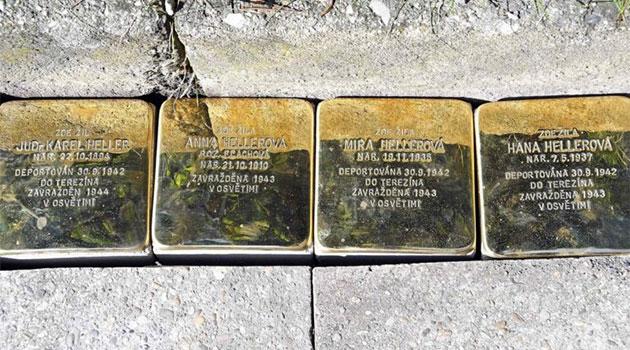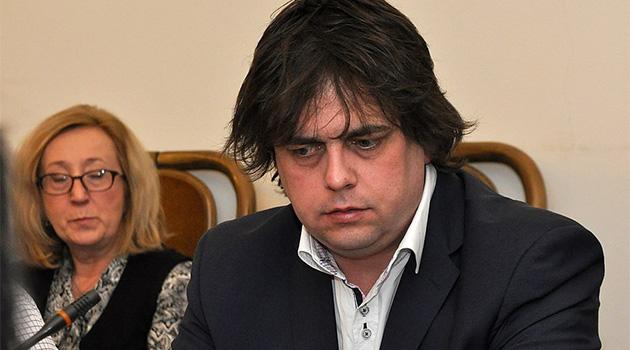Czech town unveils 15 "Stones of the Disappeared" to honor Holocaust victims

Rychnov nad Kněžnou (pop. 11 000) has joined the list of Czech municipalities with “Stones of the Disappeared” in their streets – 15 such cobblestones topped with brass plates inscribed with the names of Holocaust victims, including the author Karel Poláček, have been unveiled there. Martina Marxová from the Rychnov Museum said seven stones are in Palackého Street and eight are on Poláček Square.
The stones are a reminder of the deaths during the Holocaust of inhabitants of Jewish origin, which was such a tragedy. A commemorative event for the victims was held in front of the Rychnov Synagogue on 27 April.
“The stones of the disappeared have mostly been laid at the last known address of the victim. Although Karel Poláček lived in Prague during the Nazi occupation, he still went to Rychnov nad Kněžnou to visit his brother Milan,” Irena Krejčí, librarian of the Rychnov Museum and the main organizer of the event, told the Czech News Agency on 27 April.
Five of the local “Stones of the Disappeared” were laid for child victims. “It is important to remember that Holocaust victims were not just adults, but also children,” Marxová told the wire service.
“One child victim was Honzík Deutschmann, who was transported with his family from Rychnov at the age of seven. His fate is also commemorated during the educational program that takes place for schools on the premises of the Rychnov Synagogue,” said Marxová.
The museum staffer said more “Stones of the Disappeared” would be installed in the town. “We are planning further stages [of installation],” she said.
“There were about 230 Holocaust victims in the Rychnov area, including from Rychnov nad Kněžnou. We are cooperating with the surrounding villages,” Marxová said.
“Some towns in the district had already taken the initiative to do this on their own, such as Dobruška,” Marxová told the wire service. “Stones of the Disappeared” or Stolpersteine (stumbling stones) are special stones with a brass surface laid into the sidewalk in front of the last known residences of Holocaust victims.
“The very word Stolperstein is an expression for a stone that one is supposed to stumble or trip over, and it was created from a project by the German artist Gunter Demnig,” Krejčí said. The event in Rychnov nad Kněžnou took place on the eve of Holocaust Remembrance Day (Yom HaShoah), which remembers the six million Jews murdered during World War II.
“The date is derived from the annual commemoration of the outbreak of the Warsaw Ghetto Uprising. In the Czech Republic, the victims of the Holocaust are commemorated, for example, by public readings of their names,” said Krejčí.
The “Stones of the Disappeared” is an international initiative launched by Demnig, who installed the first such stone on 16 December 1992 in front of the town hall in Cologne, Germany. Since 2008 the Czech Republic has seen such stones installed all over the country.
There are tens of thousands of them all over Europe, meant to show that the victims of the Holocaust were human individuals. Elsewhere in the Hradec Králové Region such stones have also been unveiled in Dobruška, Jičín and Trutnov.
